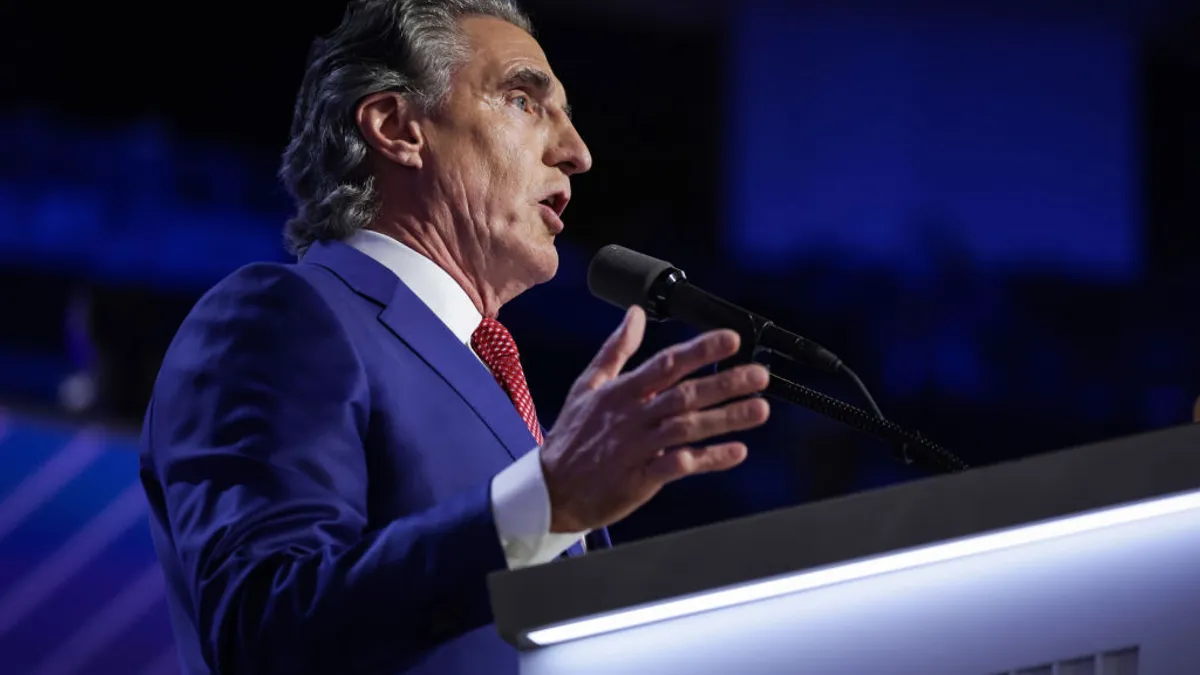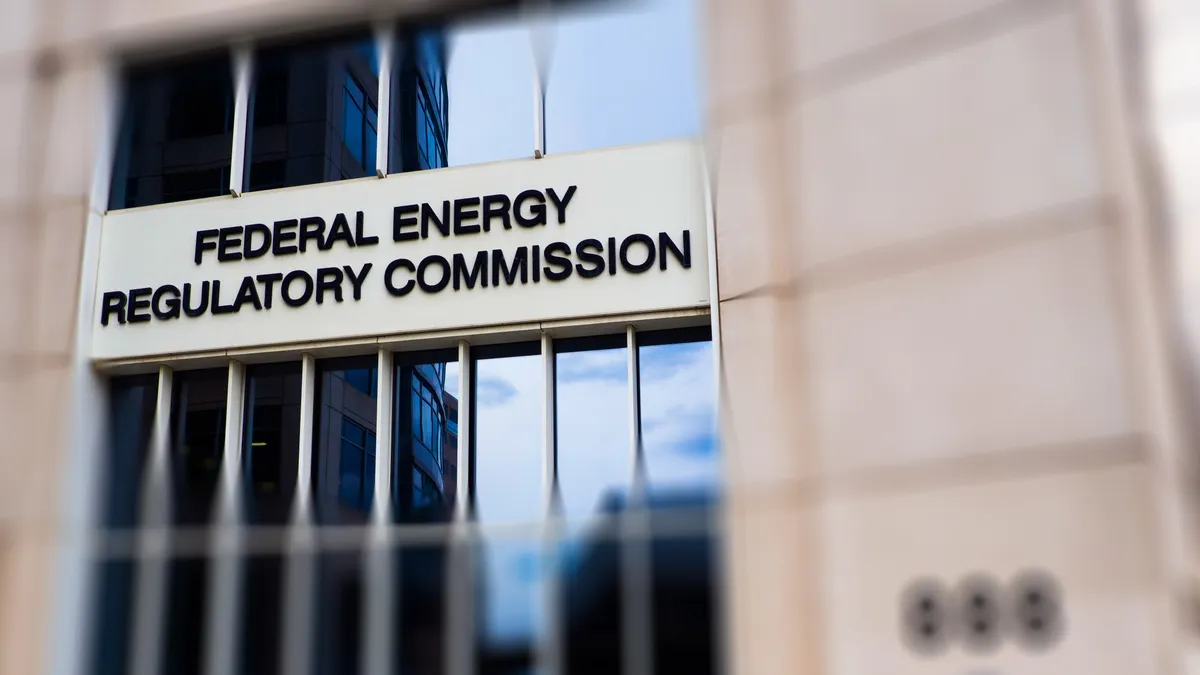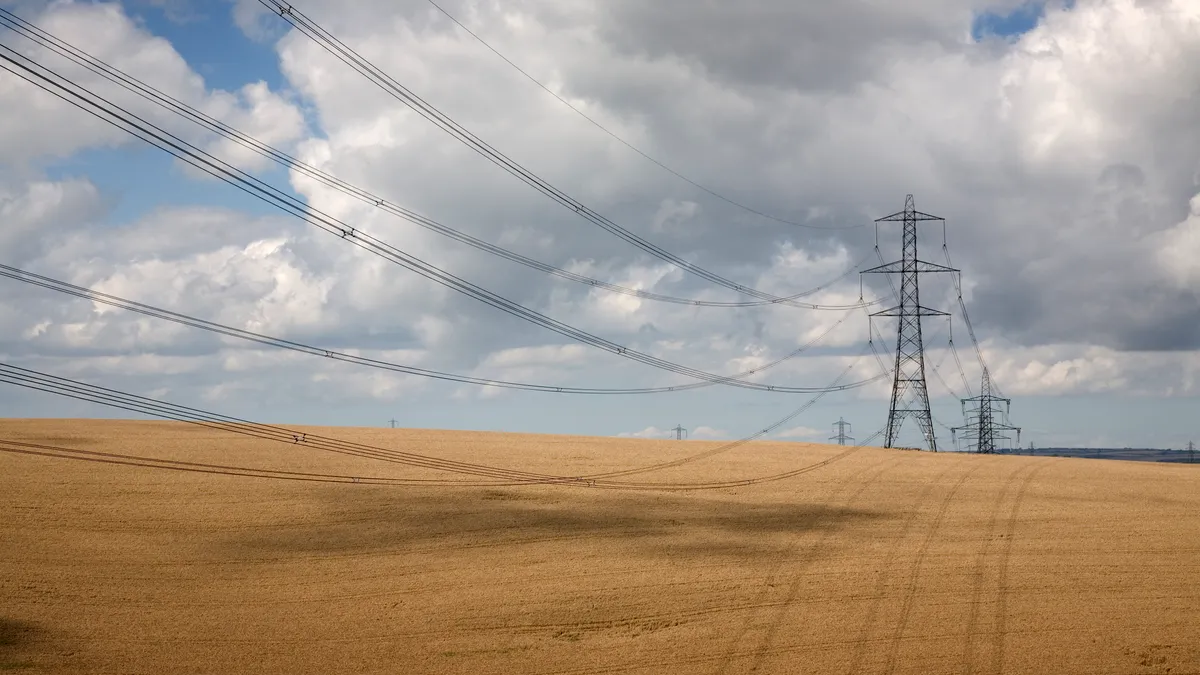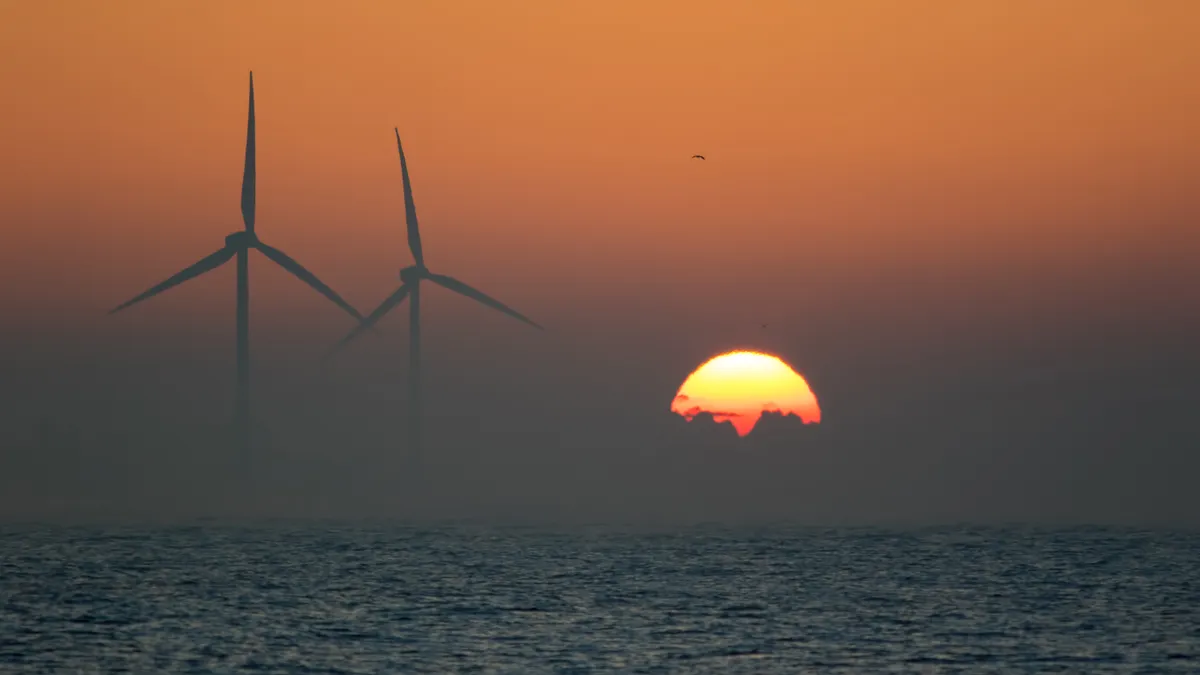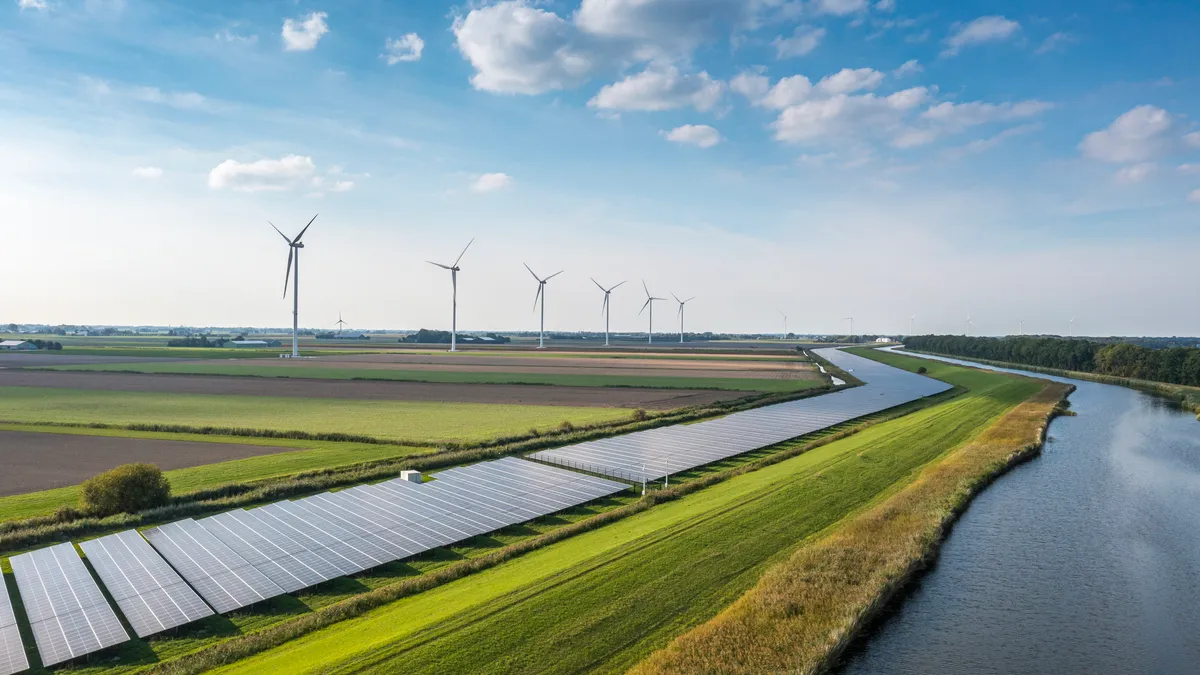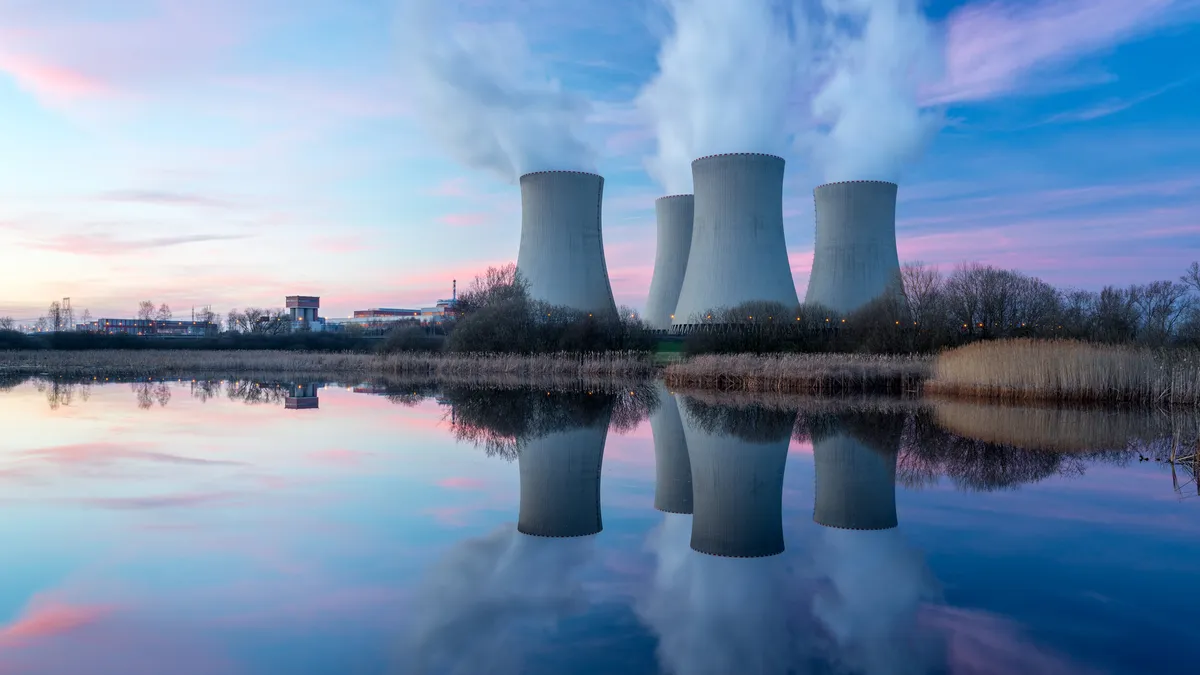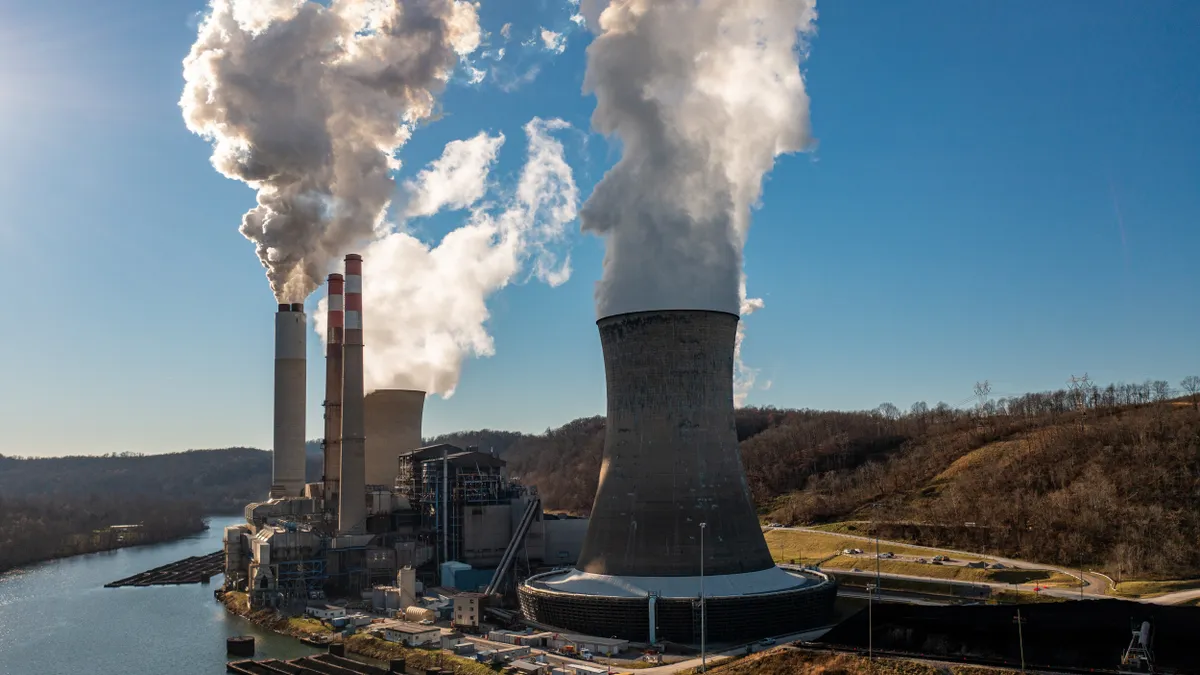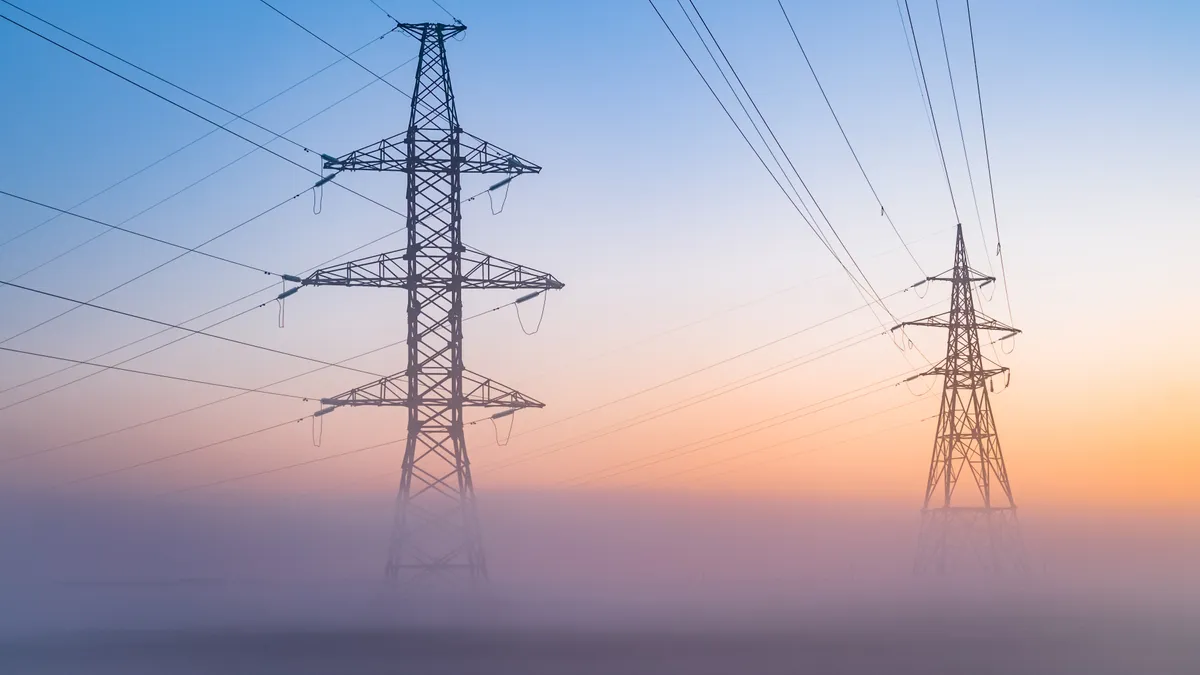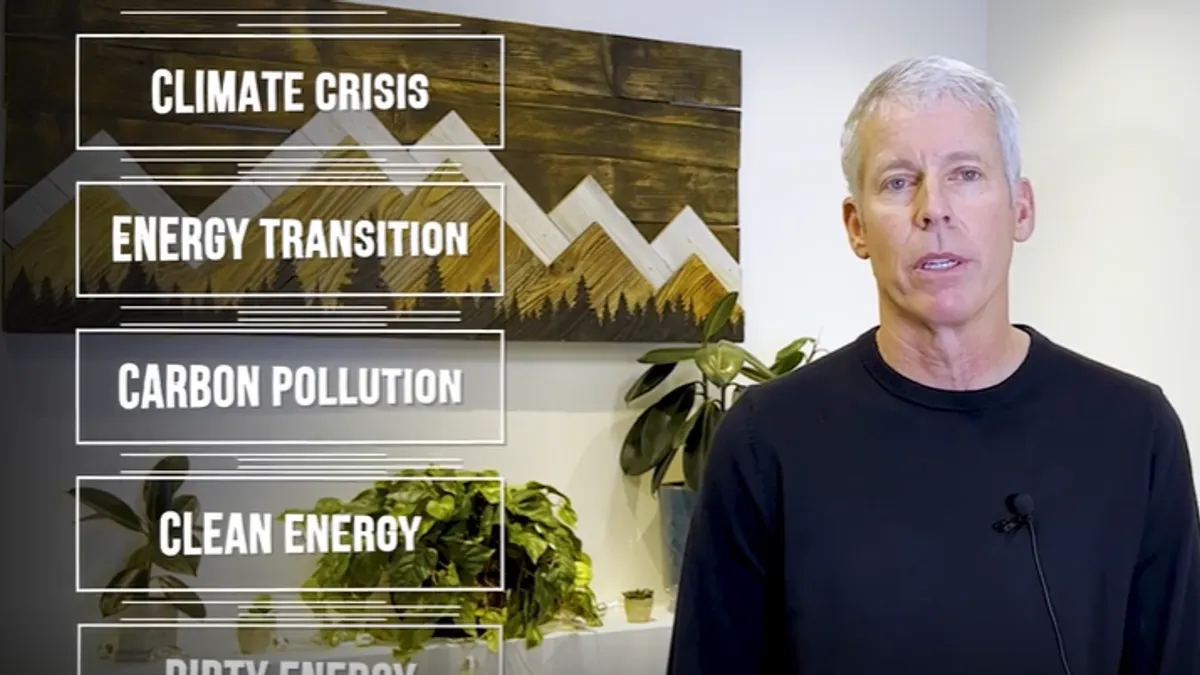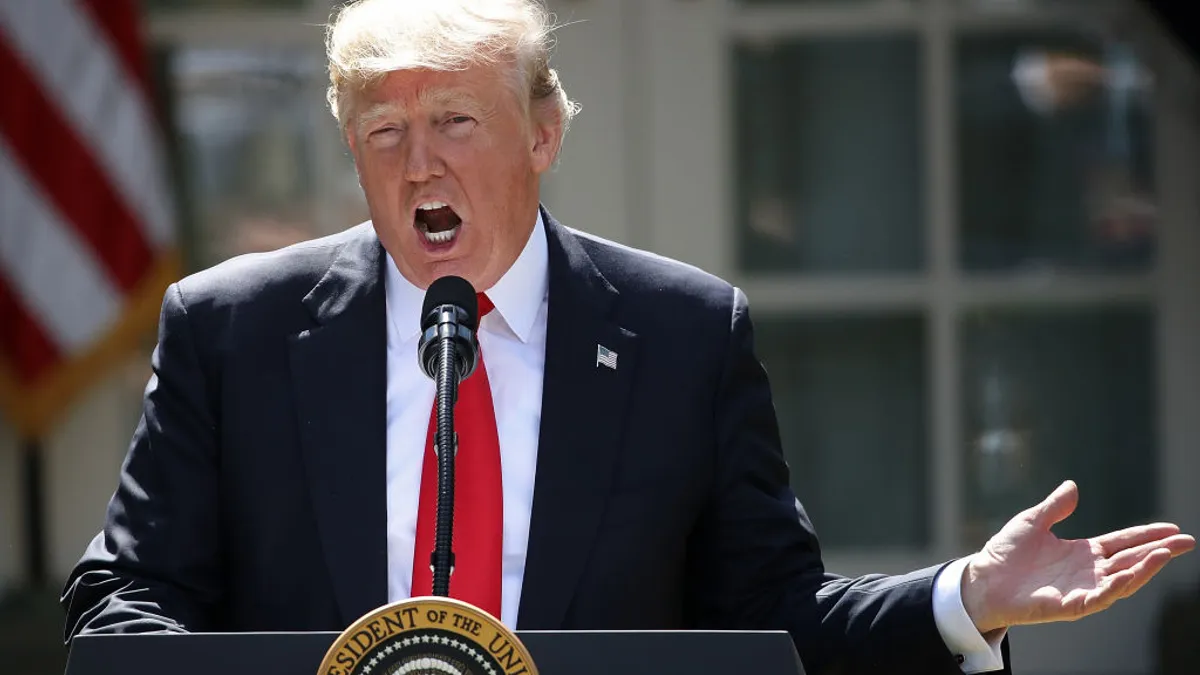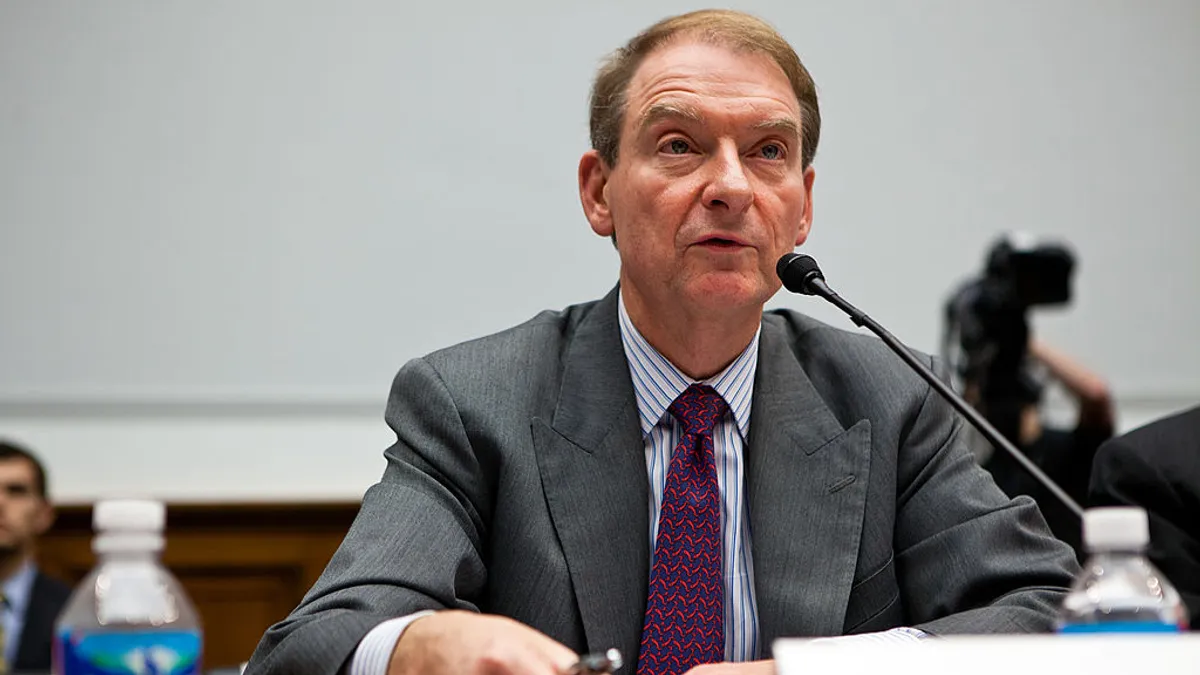Dive Brief:
- North Dakota Gov. Doug Burgum, a Republican, will run the newly formed National Energy Council and will be nominated to lead the Department of Interior, President-elect Donald Trump said Friday.
- The energy council will include federal departments and agencies involved with permitting, regulating, producing, generating, distributing and transporting energy, Trump said in a statement. The council will focus on cutting red tape, boosting private sector investment and “innovation over longstanding, but totally unnecessary, regulation,” Trump said.
- Trump said his administration will “undo the damage done by the Democrats” to the U.S. electric grid by “dramatically” increasing baseload power. “This will reduce the cost of Electrical bills that continue to skyrocket for Citizens and Small Businesses under Biden-Harris, and ensure that America has the power to serve all of our needs without the devastation of blackouts and brownouts, and to WIN the battle for A.I. superiority, which is key to National Security and our Nation’s Prosperity,” he said.
Dive Insight:
The National Energy Council will foster coordination among federal agencies to advance American energy, Burgum said in a press release. “Focusing on innovation over regulation to solve the nation’s challenges will allow us to smartly expand American energy and make our world cleaner and safer by selling energy to our friends and allies versus them having to buy it from our adversaries,” he said.
Burgum has had an “all-of-the-above” energy policy in North Dakota, according to a 2021 press release from the governor. That year, he set a goal of making North Dakota carbon-neutral by 2030, partly by using carbon capture, hydrogen and biofuels.
During a visit from Energy Secretary Jennifer Granholm, Burgum “stressed the importance of innovation over regulation to maintain U.S. energy independence and security and encourage innovation and investment into solutions that will allow for a continued all-of-the-above energy approach that includes coal, oil and gas,” the press release stated.
Coal-fired power plants produced 55% of North Dakota's electricity generation last year, followed by wind, which generated 36%, according to the Energy Information Administration. North Dakota, with about 4 GW of wind, ranked sixth among states for the share of its electricity generated from wind, the EIA said. The state is in the Midcontinent Independent System Operator footprint. It exports about half the power it produces, according to the EIA.
The Interior Department’s energy-related offices include the Bureau of Land Management and the Bureau of Ocean Energy Management. The department oversees about 500 million acres of public land and 1.7 billion acres of the outer continental shelf.
In the last four years, the Biden administration pushed to approve renewable energy projects on federal land and in federal waters. The BLM has approved about 30 GW of wind, solar and geothermal projects as of September. The bureau is reviewing applications for 41 renewable energy projects on federal land in the West totaling about 21.1 GW.
In addition, the Biden administration set a goal of deploying 30 GW of offshore wind capacity by 2030 and 15 GW of floating offshore wind by 2035. Since the start of the administration, BOEM has approved more than 15 GW in offshore wind projects.
Sen. John Barrasso, R-Wyo., ranking member of the Senate Energy and Natural Resources Committee, praised Burgum. “Governor Burgum knows what it takes to unleash American energy,” Barrasso said. “He recognizes how important our federal lands are for energy and mineral production, grazing, and recreation. As North Dakota’s governor, he’s shown he can balance environmental stewardship with record energy development.”
The Union of Concerned Scientists urged Burgum to move forward with a transition away from fossil fuels.
“As governor of a state rich in wind resources, Gov. Burgum knows well that wind is now cheaper than fossil fuels and that solar energy is the fastest growing electricity source in the nation.” said Julie McNamara, deputy policy director with the UCS’ climate and energy program. "Increasing emphasis on outdated fossil fuels will only make our country less competitive, less resilient and force working-class Americans to bear the costs on our health, climate and wallets.”



